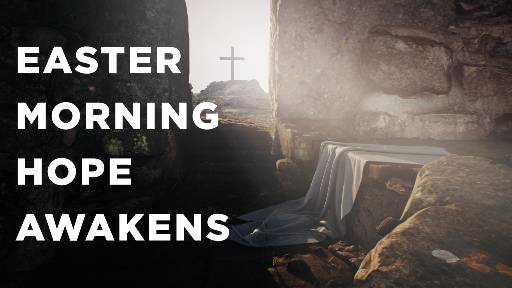-
When Israel Went Out Of Egypt.
Contributed by Christopher Holdsworth on Aug 19, 2023 (message contributor)
Summary: A defiant celebration of God's sovereign power.
WHEN ISRAEL WENT OUT OF EGYPT.
Psalm 114:1-8.
The exuberance of this Psalm is immediately evident. It is a recollection of Israel’s redemption story, beginning from when the descendants of Jacob made their exodus from Egypt. It is the prelude to the founding of what Stephen, the first Christian martyr, would later name ‘the church in the wilderness’ (cf. Acts 7:38). But most of all, although He is not named, it is a celebration of “the God of Jacob” (Psalm 114:7) who delivered them.
PSALM 114:1. When “the house of Jacob” first went down into Egypt, they were a single family of about 75 persons. Jacob’s son Joseph was Prime Minister in Egypt, and there the Pharoah welcomed Joseph’s father and brethren. But a later Pharoah of Egypt felt threatened by this growing family, and enslaved them.
One of the enduring miracles of God in relation to Israel is that He has enabled them to keep their identity. For varying reasons down through history they have been ‘strangers and pilgrims in the earth’ (cf. Hebrews 11:13). [Much as Christians surely should also be (cf. 1 Peter 2:11).]
It is a hard thing for a civilised people to live amongst – and even be in bondage to – a people of a barbarous tongue. Yet God heard the cry of His ancient people, and reached down to deliver them. Even as He has done also for His new covenant people in sending Jesus to die for our salvation.
PSALM 114:2. In this verse “Judah” and “Israel” are NOT being viewed as the divided kingdom which they would later become, but as the united entity which they already were. They were one people in God, being viewed as both His sanctuary (holy people, set apart unto Him) and as His dominion (where He had His rule.) When Israel came out of Egypt, the LORD (if I may so name Him here) ere long set up His tabernacle, to be in the midst of them, and to go before them.
Just so, Jesus promises the people whom He draws out of the Egypt of sin and death to be His people: ‘Lo I am with you always, even to the end of the world’ (cf. Matthew 28:20).
PSALM 114:3. The poet encapsulates the forty years of wilderness wanderings in these two remarkable miracles viewed at either end of the journey: the parting of the Red Sea, and the flowing backwards of the River Jordan. (Only Joshua and Caleb were adult witnesses to both.) The sea “saw” what God had done, and before the presence of this God had to flee from its courses; the river was “driven back” by the LORD at the head of His people.
PSALM 114:4. This moving of mountains took place when the LORD descended upon Mount Sinai (cf. Exodus 19:16; Deuteronomy 4:11-12; Hebrews 12:18-19). This is not just seismic and weather phenomena, but something far more momentous.
The irony of the figure lies in the fact that the mountains and hills, which seem to be so durable, are at last seen to be behaving with the timidity of sheep. The likes of this may never be seen again until the consummation of all things, when ‘the mountains shall depart, and the hills be removed’ at the coming of the Lord (cf. Isaiah 54:10).
There is such a thing as mountain-moving faith for those who have faith in God (cf. Mark 11:23).
PSALM 114:5-6. “What (or indeed, Who) ailed thee?” This is a taunt: first to the sea and Jordan; and then to the mountains and hills. ‘What is up with you that you behaved so?’ Why is it?
In like manner the Christian church taunts death in light of the resurrection (cf. 1 Corinthians 15:55-56).
PSALM 114:7. The answer at last comes: it is “the Lord” - not here named as ‘YHWH,’ but addressed as “Adonai,” Sovereign. The mocking tone remains: “Tremble, thou earth, at the presence of the Lord, at the presence of the God of Jacob.”
This “trembling” is as the birth-pangs of Israel, when ‘a nation was born in a day’ (cf. Isaiah 66:8).
PSALM 114:8. At Sinai, the hard “rock” was turned into “a standing water,” and the soft “flint” into “a fountain of waters.”
Likewise the Lord ministers to the hard heart, turning the heart of stone into a heart of flesh (cf. Ezekiel 36:26), and does not despise ‘the broken and contrite heart’ (cf. Psalm 51:17).
What a demonstration of the power of God!

 Sermon Central
Sermon Central



